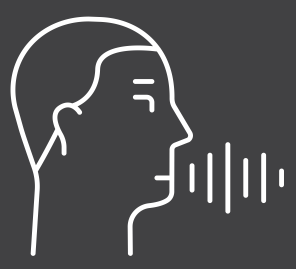There was a time when I was content to let my bank authenticate me over the phone by asking for some personal identifiers (SSN/DOB) that are broadly for sale in the cybercrime underground. At some point, however, I decided this wasn’t acceptable for institutions that held significant chunks of our money, and I began taking our business away from those that wouldn’t let me add a simple verbal passphrase that needed to be uttered before any account details could be discussed over the phone.
 Most financial institutions will let customers add verbal passwords or personal identification numbers (PINs) that are separate from any other PIN or online banking password you might use, although few will advertise this.
Most financial institutions will let customers add verbal passwords or personal identification numbers (PINs) that are separate from any other PIN or online banking password you might use, although few will advertise this.
Even so, many institutions don’t properly train their customer support staff (or have high turnover in that department). This can allow clever and insistent crooks to coax customer service reps into validating the call with just the SSN and/or date of birth, or requiring the correct answers to so-called knowledge-based authentication (KBA) questions.
As noted in several stories here previously, identity thieves can reliably work around KBA because it involves answering questions about things like previous loans, addresses and co-residents — information that can often be gleaned from online services or social media.
A few years ago, I began testing financial institutions that held our personal assets. I was pleasantly surprised to discover that most of them were happy to add a PIN or pass phrase to the account. But many of the customer service personnel at those institutions failed in their responses when I called in and said I didn’t remember the phrase and was there any other way they could verify that I was me?
Ultimately, I ended up moving our investments to an institution that consistently adhered to my requirements. Namely, that failing to provide the pass phrase required an in-person visit to a bank branch to continue the transaction, at which time ID would be requested. Their customer service folks consistently asked the right questions, and weren’t interested in being much helpful otherwise (I’m not going to name the institution for obvious reasons).
Not sure whether your financial institution supports verbal passwords? Ask them. If they agree to set one up for you, take a moment or two over the next few days to call in and see if you can get the customer service folks at that institution to talk about your account without hearing that password.
While a great many people are willing to trade security for more convenience, it’s nice when those of us who are paranoid can opt-in for more security. A great, recent example of this is Google‘s optional “advanced protection” feature, which makes it much harder for password thieves to hack into your Gmail, Drive or other Google properties — even if the attackers already know your password.
“The opt-in, ultra-secure mode is intended for truly high-risk users, including those who face the threat of state-sponsored, highly resourced cyberespionage,” writes Andy Greenberg for Wired. “Think politicians and officials, high net-worth individuals, activists, dissidents, and journalists.”
Greenberg continues:
“As such, it’s a strict and unforgiving system, designed to reinforce every possible weak link that hackers could use to hijack your account. Logging in from a desktop will require a special USB key, while accessing your data from a mobile device will similarly require a Bluetooth dongle. All non-Google services and apps will be exiled from reaching into your Gmail or Google Drive. Google’s malware scanners will use a more intensive process to quarantine and analyze incoming documents. And if you forget your password, or lose your hardware login keys, you’ll have to jump through more hoops than ever to regain access, the better to foil any intruders who would abuse that process to circumvent all of Google’s other safeguards.”
Gartner fraud analyst Avivah Litan says she has long relied on verbal passwords for her most important accounts.
“I think a verbal password is a good step and definitely adds more security than does KBA built on top of heavily compromised credit bureau and life history data,” Litan said. Plus it’s free and convenient. It’s of course not perfect and consumers should try to use verbal passwords that are unique for them and which they don’t use for online passwords — in case the latter have been compromised by hackers.”
Verbal passwords should not be confused with voice biometrics, a technology some financial institutions are now adopting that can help authenticate customers while profiling and blocking fraudsters who repeatedly call in to customer service representatives. Even if your institution offers voice biometrics, adding a verbal password/passphrase is still a good idea.
Julie Conroy, research director at market research firm Aite Group, said financial institutions are still very concerned about putting up too many hurdles for good customers, so many are treading lightly on verbal passwords.
“Many FIs are moving in the direction of not just asking for the password, but also behind the scenes they are performing analysis of the call characteristics as well as the consumer’s voice print,” Conroy said.
Have you asked your financial institution(s) to add a unique verbal password/passphrase for your most important accounts? If so, sound off about your experience in the comments below.
from
https://krebsonsecurity.com/2017/11/simple-banking-security-tip-verbal-passwords/
No comments:
Post a Comment